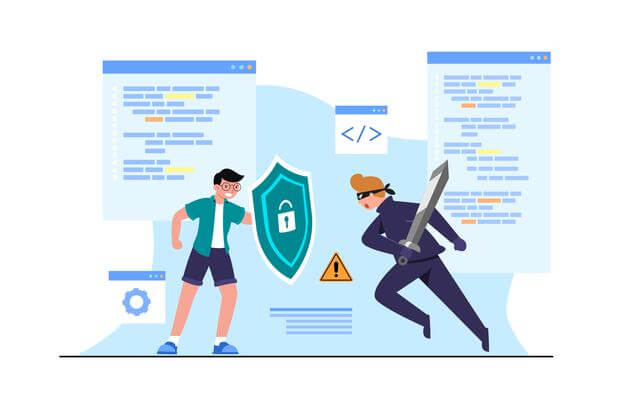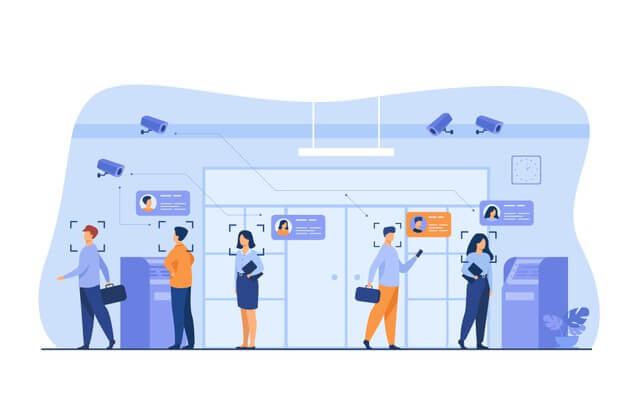
Is your business obtaining data from your customers, clients, or employees? If so, do you know what ICO data protection is? Are you in doubt if your business needs ICO data protection? If yes, then you are at the right place to know the answers to all these questions.
We are living in an era where every step we take leaves a data trail. As a result, data breaches occur more frequently than ever for inadequate data protection. Moreover, businesses can keep their customers’ data to operate their business properly. To do so, they must follow the data protection rules and regulations. ICO data protection ensures that businesses take adequate measures to secure all the data they obtain about other people.
This blog familiarises you with all the compulsory things of ICO data protection. Also, you can understand if your business needs ICO data protection. Read to know more.
What is ICO?

The Information Commissioner’s Office, in short ICO, is an independent authority in the UK that continuously works on ensuring data protection. ICO is responsible for protecting the right to information of the public and also providing their data privacy. They are also responsible for forming a host of laws for data protection, communication, and networking.
Moreover, ICO holds the duty of enforcing two of the data protection laws. These laws are the Data Protection Act (DPA) 2018 and the General Data Protection Regulation (GDPR). The ICO makes sure that businesses within the UK are following all data protection principles strictly. Therefore, it involves supervising businesses and how they obtain and use personal data. They see if the process is fair and transparent, following the rights of individuals.
In case of any cyber-attack on a multi-national company or the loss of data by any organisation such as a local hospital, the ICO will take action on behalf of the UK public.
Besides, the ICO must investigate public complaints on data protection. As a result, they have the right to impose hefty penalties on companies violating the data protection principles.
What is ICO Data Protection?

Data protection is the act of securing personal information reasonably. It is one of the fundamental rights to privacy of every person. The whole law and data protection process are about treating people fairly and openly while taking personal data.
But for businesses and organisations, protecting the data they take from people can help build trust. Furthermore, it allows people to acknowledge their right to control their own identity and interactions with other individuals and balance them with society’s broader interests.
To define it, personal data are any pieces of information associated with the identification of any person. These data refers to a name, an identification number, address, or an online identifier. It can also be one of several characteristics that express a person’s physical, physiological, genetic, mental, commercial, cultural, or social identity. These data also includes:
- Photos or video footage of people (including CCTV)
- A computer and phone IP addresses
- An individual email address (business or personal)
- Landline number
- Credit card
- Account data,
- Number plate,
- Appearance,
- Customer number
- Any data that acts as an identifier
Data protection is essential for innovation. Good data protection practices are critical for ensuring public trust, involvement with, and supporting innovative data uses in the public and private sectors. The DPA 2018 and the GDPR in the UK lay down the data protection rule. And all businesses and companies who have personal data and information of the public must strictly comply with the laws.
DPA 2018 is the up-to-date version of DPA1998. And it was made in compliance with GDPR. Therefore, GDPR is a law prompting businesses to protect EU citizens’ data and privacy for transactions in the EU Member States.
Data Protection Act 2018 Principles:
Every business that comes to take their customers’ and employee’s data must abide by the Data Protection Act 2018 principles. These principles are:
- Personal Data has to be used fairly, lawfully, and transparently.
- Personal data has to be used for specified, explicit purposes.
- Use of personal data must be in a way that is adequate, relevant, and limited to only the purpose it is necessary.
- Personal data has to be accurate and, where necessary, kept up to date.
- The information can be kept for no longer than is necessary.
- Finally, it has to be managed in a way that provides enough security, including protection against unlawful or unauthorised processing, access, loss, destruction, or damage.
According to the Data Protection Act 2018, every UK citizen has the right to find out what information the government and other organisations store about you. These rights are:
- Getting informed about how your data is being used.
- Get access to personal data.
- Update any incorrect data.
- You can have your data erased.
- You can stop or restrict the processing of your data.
- Data portability, or the right to allow obtaining and reusing your data for different services.
- You can object to how your data is processed in certain situations.
Furthermore, you also have rights when an organisation is using your data for:
- Automated decision-making processes
- Profiling like predict your behaviour or interests.
Is ICO Data Protection Mandatory for All Businesses?

After all these rules and regulations, the next question can be, does every business need to register for ICO Data Protection regulation? Under the Data Protection Act 2018, any company or sole trader handling and controlling personal information must register with the ICO. Failing to do is a criminal offence.
In addition, you have to pay an annual data protection fee. The amount of fee also depends upon the size of the organisation. This fee helps to fund the work of ICO.
When more than one party is involved in data management, the registration is based on whether an individual or an organisation holds the data. For example, all private and commercial landlords and practitioners must also register. They are classified as operating a company that receives and saves personal information about existing and past tenants on any electronic device.
Any business using CCTV must pay the annual fee, regardless of the other aspects of its business and operations. Moreover, you can quickly check if your organisation needs to pay the fee using our self-assessment tool. It means that if you use CCTV for preventing crime, you do not need to complete the self-assessment checklist. You are using it for crime preservation.
Who are Exempt from Paying ICO Data Protection Fee?

In general, if your business is managing data as a data controller, you need to pay the fee. But there are some exceptions. For example, you do not have to pay the fee if you are processing personal data for the following reasons:
- Staff administration
- Advertising, marketing, and public relations
- Accounts and records
- Not-for-profit reasons
- Personal, family, or domestic affairs
- Judicial functions
- Maintaining a public register
- Processing personal data without an automated system like a computer.
- Members of the House of Lords, elected members, and prospective representatives are exempt.
How to Register for ICO Data Protection?

The process of registration is straightforward. You need to fill up a form, which takes only about 15 minutes. The form will appear once you click the “First time Payment” option. To fill-up the form, you need the following things:
- Your credit/debit card or other payment details;
- Details about the organisation(s) you are registering. For example, companies’ house number (if applicable), name, and address.
- Details about the number of staff you have and your turnover.
Once your first registration is complete, you have to renew the registration every year.
ICO Data Protection Fee
Once again, the fee you have to give depends on the size and turnover of your business. The fee amount varies from £40 and £2,900 annually. Most organisations pay £40 or £60. Few exceptional organisations pay £40. These organisations are mainly charities and small occupational pension schemes. The amount your business have to pay for data protection depends on:
- How many members of staff you have;
- Your annual turnover;
- If your organisation is a public authority;
- If your organisation is charity;
- Finally, if your organisation is a small occupational pension scheme.
ICO Data Protection Penalty
Inability to follow the rules of ICO data protection and not paying the fee in time is considered a criminal offence. You need to pay a hefty amount if any data breaches occur. ICO, therefore, has the right to fine you if there are any complaints if you did not register or pay the fee in time. The penalty can be a maximum of £17.5 million, or 4% of yearly global turnover.
ICO Data Protection Breach
If there is any incident of a personal data protection breach, you need to understand its severity. A personal data breach is defined as a security breach that results in unintentional or unlawful damage, loss, alteration, unauthorised disclosure, or access to personal data. In case of such an incident, assess the seriousness of the situation by finding out if the breach poses any danger to the people. Notify the ICO immediately if the data breach is too severe.
You do not have to report every data breach. You can also do a self-assessment of any data breach and determine the severity.
Conclusion
In today’s date, businesses need to know the importance of data protection. If your business is taking and controlling data, follow the processes mentioned above to rectify your data protection process. If you need further knowledge on data protection, sign up for our courses for Data Protection and GDPR Training.
Read more on our blog
- 7 Reasons You Should Enrol in a Level 4 Health and Social Care Course Today
- 15 Highest Paying Healthcare Jobs UK in 2026 | Earn up to 200K
- Is day care beneficial for building social skills in kids
- Top 10 Remote Jobs for Beginners Without Experience
- Modern Plumbing: Describe the advanced sanitation and drainage systems.
- How to Prepare Your Workforce for New UK Regulations Coming in 2026
- Food Hygiene Training for Hospitality Staff: Key Compliance Guidelines
- Health & Safety Online Training to Reduce Workplace Accidents
- Mental Health Awareness Training for Managers and Employees
- Team Training & Development
- Available Courses
- Animal care10
- Design28
- Training9
- Accounting & Finance Primary50
- Teaching & Academics Primary37
- Teaching23
- Quality Licence Scheme Endorsed181
- Law10
- IT & Software231
- Job Ready Programme52
- Charity & Non-Profit Courses28
- HR & Leadership4
- Administration & Office Skills4
- Mandatory Training36
- Regulated Courses4
- AI & Data Literacy29
- Health and Social Care290
- Personal Development1634
- Food Hygiene119
- Safeguarding80
- Employability288
- First Aid73
- Business Skills297
- Management425
- Child Psychology40
- Health and Safety534
- Hospitality28
- Electronics30
- Construction63
- Career Bundles201
- Marketing39
- Healthcare172

 Food Hygiene
Food Hygiene Health & Safety
Health & Safety Safeguarding
Safeguarding First Aid
First Aid Business Skills
Business Skills Personal Development
Personal Development